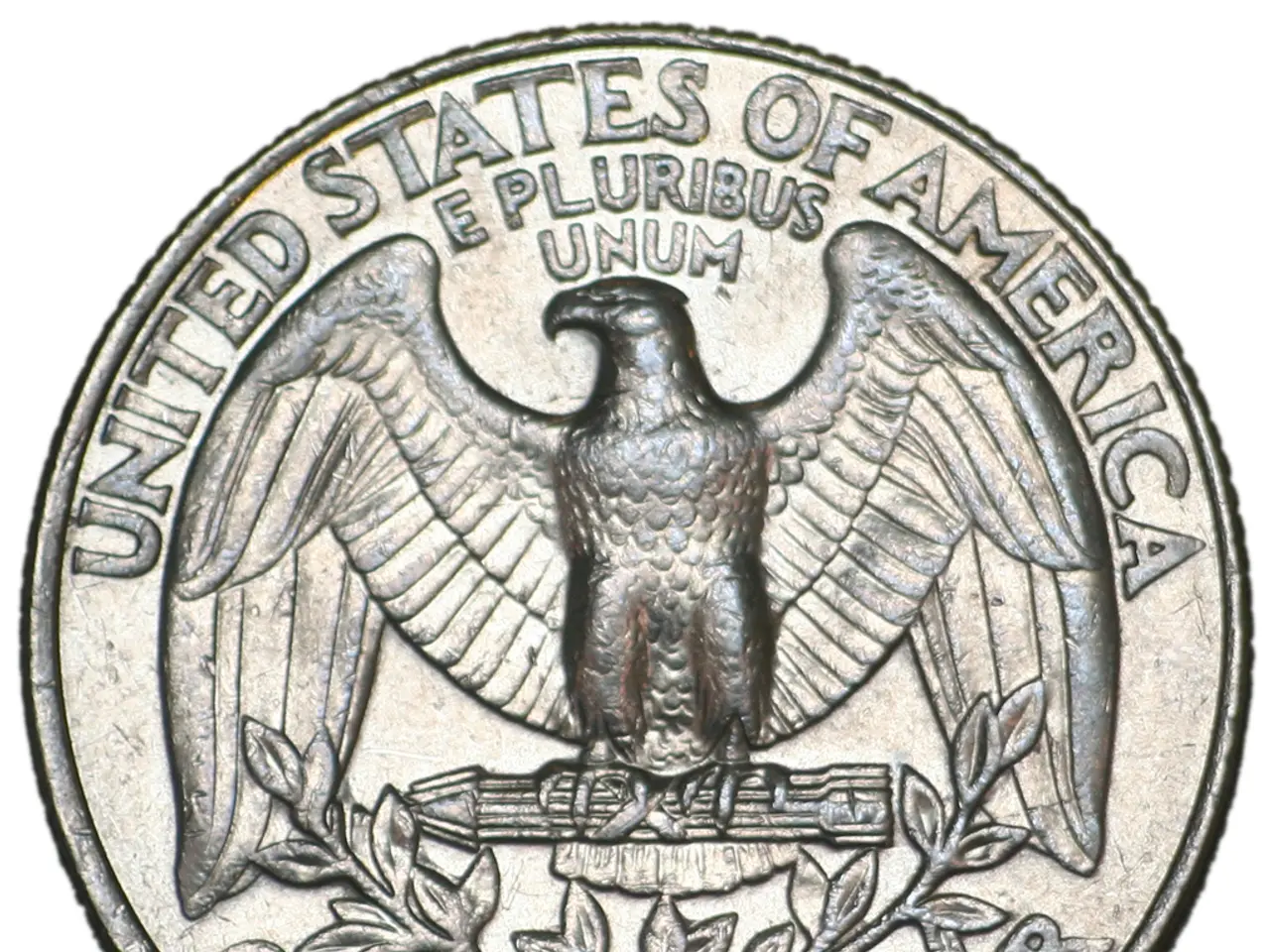Kraken Introduces Instant USD Deposits Through PayPal in the United States
PayPal Expands Crypto Payments, Mainstreaming Cryptocurrency Use in Commerce
PayPal is broadening its cryptocurrency offerings, integrating with popular crypto wallets and enabling merchants to accept over 100 different digital assets, including Bitcoin and Ethereum, for payments starting August 2025 [1][2][3][5]. This move aims to simplify crypto entry for newcomers and make the process more intuitive for regular users.
The integration marks a significant step forward for PayPal, following its successful implementation of similar services in the EU, U.K., and Australia [1]. The company is now integrated with Kraken, Coinbase, Binance, and OKEx, among others [2].
PayPal's new crypto payment option offers 24/7 fast deposits, reducing waiting time at banks due to delayed clearances [3]. This feature is particularly beneficial for American merchants, who can reduce cross-border fees by up to 90% [4].
PayPal converts these crypto payments automatically into either fiat currency or its own stablecoin, PYUSD, to reduce volatility risks for merchants [2]. This feature simplifies international commerce and provides merchants near-instant access to funds [5].
The development boosts Kraken's commitment to supporting trustworthy and regulated digital assets [6]. Kraken has enabled instant USD deposits via PayPal for U.S. clients [7]. Deposits can be made using a PayPal balance, a linked bank account, or a card [8].
The Kraken App and Kraken Pro platforms offer users end-to-end control post deposit, including trading, staking, and earning rewards [9]. However, PayPal's automatic conversion to stablecoins or fiat before payment means it functions more as a payment processor than a direct crypto trading platform [3][5]. This could reduce some on-exchange trading activity but might increase overall adoption and usage of crypto by simplifying merchant acceptance and consumer spending processes.
The expansion of PayPal's crypto payment infrastructure reinforces the company as a significant mainstream gateway for cryptocurrency transactions in retail. Meanwhile, PayPal's stablecoin, PYUSD, has gained momentum with settlement systems like Visa [10]. A report from Citi predicts that the supply of stablecoins could reach $3.7 trillion by 2030 [11].
Traditional banks are also getting into stablecoins. JPMorgan is looking into JPM Coin, and Citi is considering launching its own digital currency [12]. This trend indicates a growing acceptance and integration of digital assets into the mainstream financial system.
In summary, PayPal is expanding crypto payments widely to merchants, thereby mainstreaming cryptocurrency use in commerce, while working with crypto wallets including Kraken’s. Its role is as a crypto payment facilitator leveraging stablecoins and fiat conversion, which is complementary but could modify how exchanges like Kraken participate in transactional flows—shifting some crypto activity off exchanges and onto payment rails powered by PayPal [1][3][5].
- PayPal's new cryptocurrency payment option will allow merchants to accept over 100 digital assets, including stablecoins like PYUSD, starting August 2025.
- The integration of PayPal with various crypto wallets, such as Kraken, Coinbase, Binance, and OKEx, aims to streamline the process of crypto entry and make it more user-friendly for mainstream commerce.




